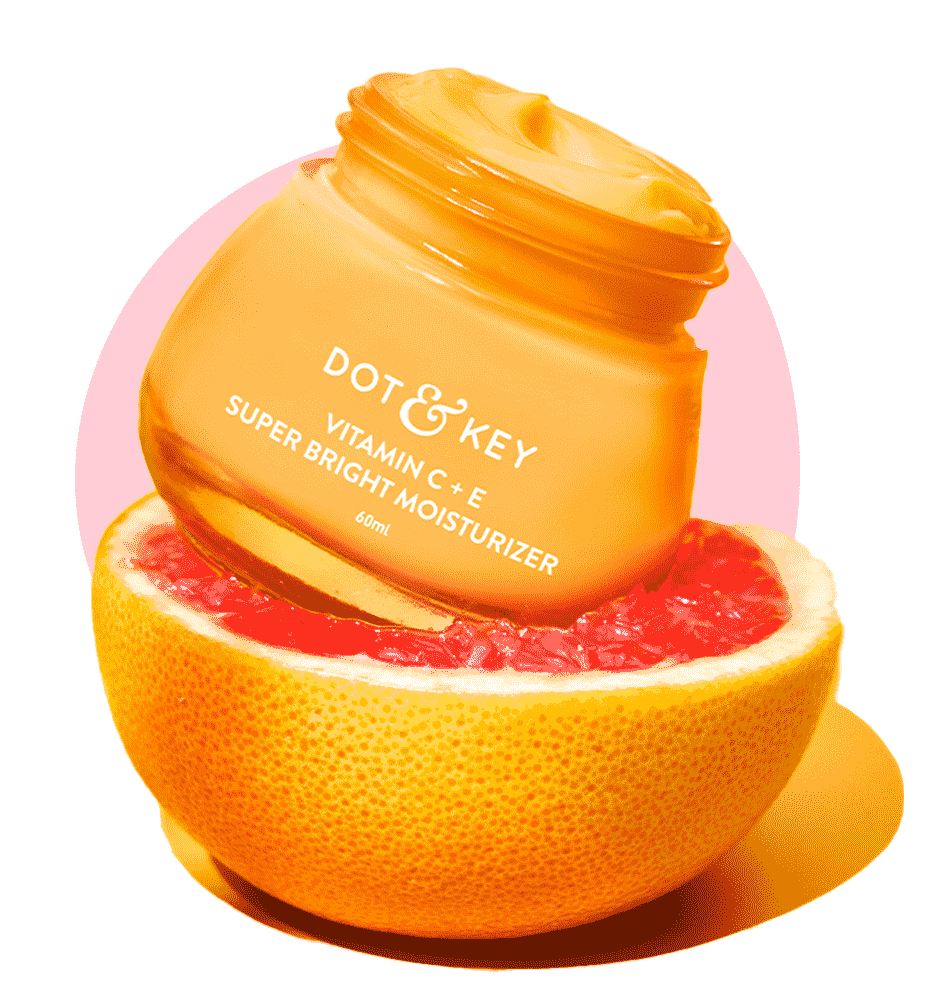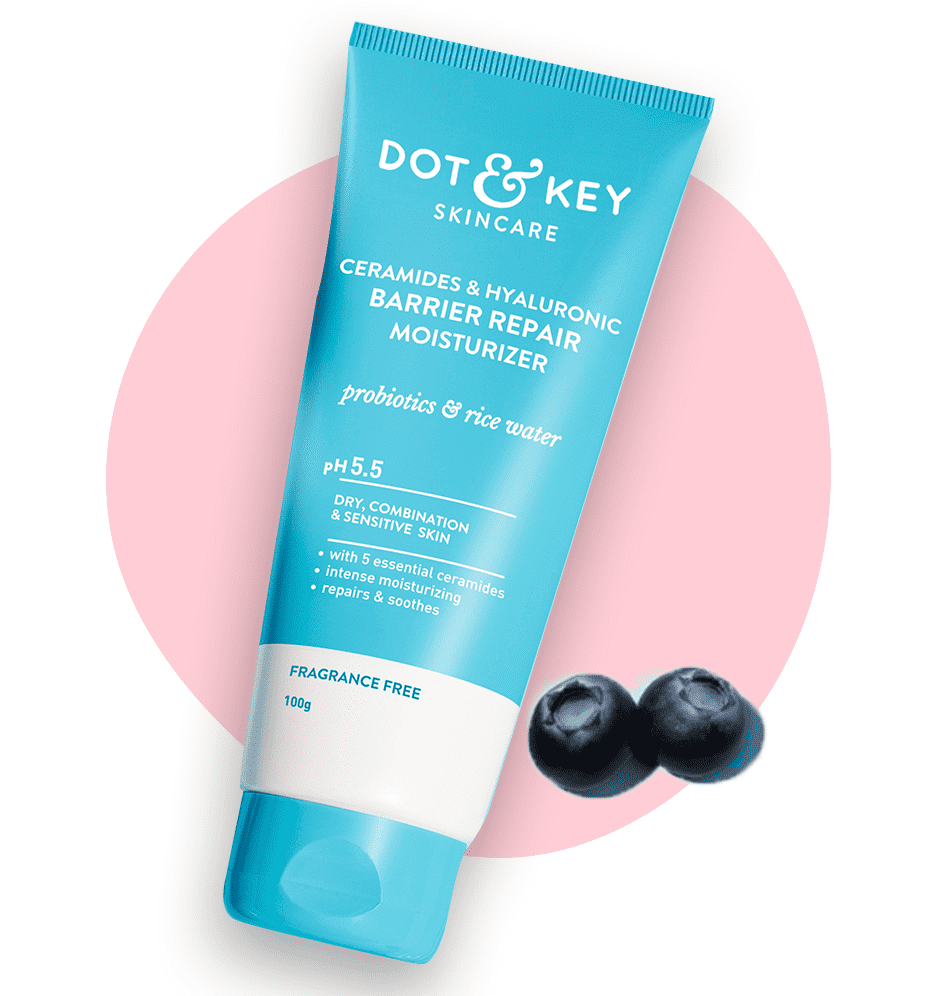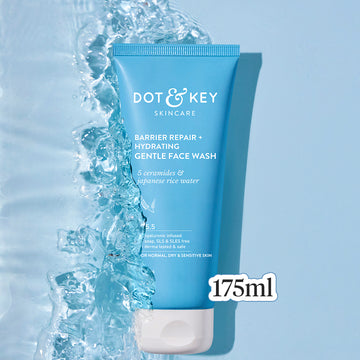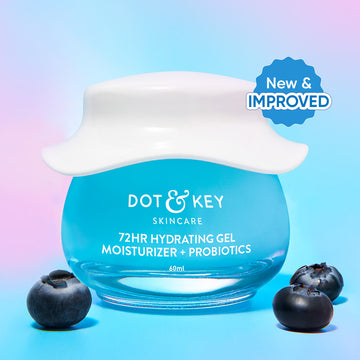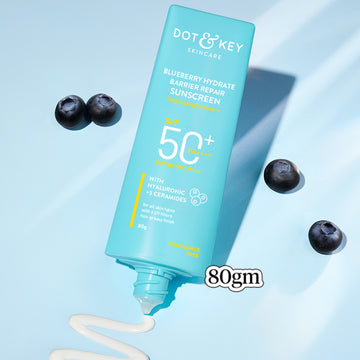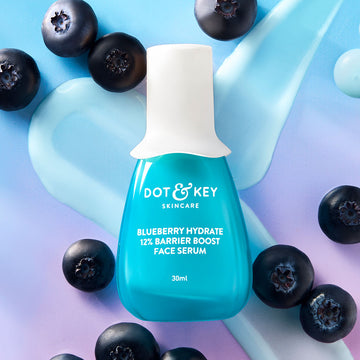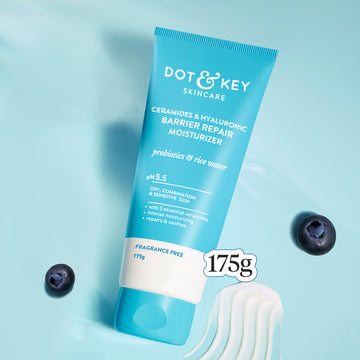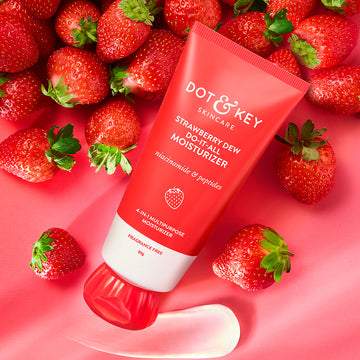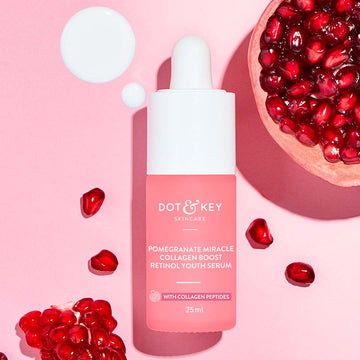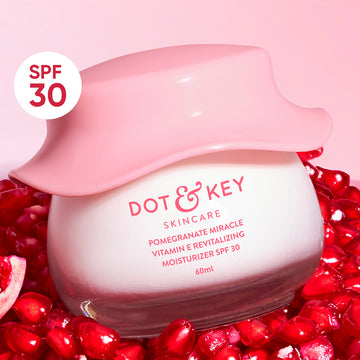
Ceramides and peptides are two powerhouse ingredients in skincare that focus on improving skin health, but they work in different ways. Ceramides are essential for maintaining a strong skin barrier, while peptides target collagen production and anti-ageing. Understanding their differences can help you decide which is better for your skincare routine—or if you should use both.
Here’s a detailed comparison to help you make an informed decision.
What are Ceramides?
Ceramides are naturally occurring lipids (fats) that make up over 50% of the skin’s outer layer. They play a critical role in maintaining the skin barrier and retaining moisture.
Key Benefits of Ceramides:
- Strengthen the Skin Barrier: Protects against environmental damage and prevents water loss.
- Retain Moisture: Keeps skin hydrated and prevents dryness.
- Soothes Sensitivity: Reduces redness and irritation by repairing the skin barrier.
- Enhances Resilience: Improves skin’s ability to defend against external aggressors.
- Gentle and Non-Irritating: Suitable for all skin types, including sensitive skin.
What are Peptides?
Peptides are short chains of amino acids, which are the building blocks of proteins like collagen, elastin, and keratin. In skincare, peptides signal the skin to produce more collagen and repair damage
Key Benefits of Peptides:
- Boost Collagen Production: Improves skin elasticity and reduces wrinkles.
- Anti-Ageing: Softens the appearance of fine lines and improves firmness.
- Promotes Skin Repair: Helps rebuild damaged tissue and enhance skin resilience.
- Improves Skin Texture: Smooths rough patches and refines overall appearance.
- Safe for All Skin Types: Gentle and non-irritating.
How They Compare
| Feature | Ceramides | Peptides |
|---|---|---|
| Primary Function | Strengthens the skin barrier and retains moisture. | Boosts collagen production and repairs skin. |
| Anti-Ageing Benefits | Indirect; focuses on hydration and barrier repair. | Direct; reduces wrinkles and improves elasticity. |
| Skin Barrier Support | Excellent; repairs and reinforces the barrier. | Minimal; supports repair but not barrier-specific. |
| Hydration | Retains moisture and prevents water loss. | Hydrates indirectly by improving skin health. |
| Skin Type | Ideal for dry, sensitive, or irritated skin. | Suitable for all skin types, especially ageing or damaged skin. |
| Frequency of Use | Safe for daily use, morning and night. | Safe for daily use, morning and night. |
| Irritation Potential | Very low; gentle on all skin types. | Very low; generally non-irritating. |
Which is Better for Your Skin?
The choice between ceramides and peptides depends on your skin’s specific needs and concerns:
Choose Ceramides If:
- Your skin is dry, sensitive, or irritated and needs barrier repair.
- You’re dealing with redness, flakiness, or environmental damage.
- Your primary goal is to maintain hydration and prevent moisture loss.
- You’re looking to protect and strengthen your skin barrier for overall resilience.
Choose Peptides If:
- Your focus is on anti-ageing, such as reducing fine lines and wrinkles.
- You want to boost collagen production and improve skin elasticity.
- You’re dealing with dullness or uneven skin texture.
- Your goal is to repair and rejuvenate your skin for a youthful appearance.
Can You Use Ceramides and Peptides Together?
Yes, ceramides and peptides work beautifully together, offering complementary benefits:
- Ceramides: Strengthen the skin barrier and retain moisture.
- Peptides: Repair and rebuild collagen for a firmer, smoother appearance.
How to Use Them Together:
- Layering: Apply a peptide serum first to deliver active ingredients deeper into the skin.
- Follow with Ceramides: Use a moisturizer containing ceramides to lock in hydration and strengthen the barrier.
- Morning and Night: Use them both in your morning and evening routines for optimal results.
Who Should Use Both?
- Ageing Skin: Peptides reduce wrinkles, and ceramides improve hydration and barrier health.
- Sensitive Skin: Ceramides soothe irritation, and peptides enhance repair.
- Dry, Dehydrated Skin: Use ceramides for moisture retention and peptides to improve skin texture.
Common Mistakes to Avoid
- Skipping Sunscreen: Both ingredients improve skin health but don’t protect against UV damage. Always wear SPF during the day.
- Using Too Little Product: For peptides, ensure you use enough serum to cover your face and neck. For ceramides, apply generously to lock in hydration.
- Expecting Instant Results: Peptides and ceramides work over time. Be consistent for long-term benefits.
Ceramides
products
Peptides
products1
Science Backing
- Ceramides: Studies in the Journal of Dermatological Science confirm ceramides’ ability to strengthen the skin barrier and retain moisture.
- Peptides: Research in the Journal of Cosmetic Dermatology highlights peptides’ role in stimulating collagen production and improving skin elasticity.
- Combination Use: Dermatologists recommend combining ceramides and peptides for a comprehensive approach to hydration, repair, and anti-ageing, as noted in the Journal of Clinical and Aesthetic Dermatology.
Conclusion
Both ceramides and peptides are essential skincare ingredients, but they address different concerns. Choose ceramides for hydration, barrier repair, and soothing sensitive skin. Opt for peptides if your focus is on anti-ageing, collagen production, and improving skin texture.
FAQs About Ceramides and Peptides
1. Which Should I Use First?
Apply peptides first as a serum, followed by a ceramide-rich moisturizer to lock in hydration.
2. Can I Use Them Every Day?
Yes, both ceramides and peptides are safe for daily use, morning and night.
3. Do They Work for All Skin Types?
Yes, both are suitable for all skin types, but ceramides are especially beneficial for dry and sensitive skin.








